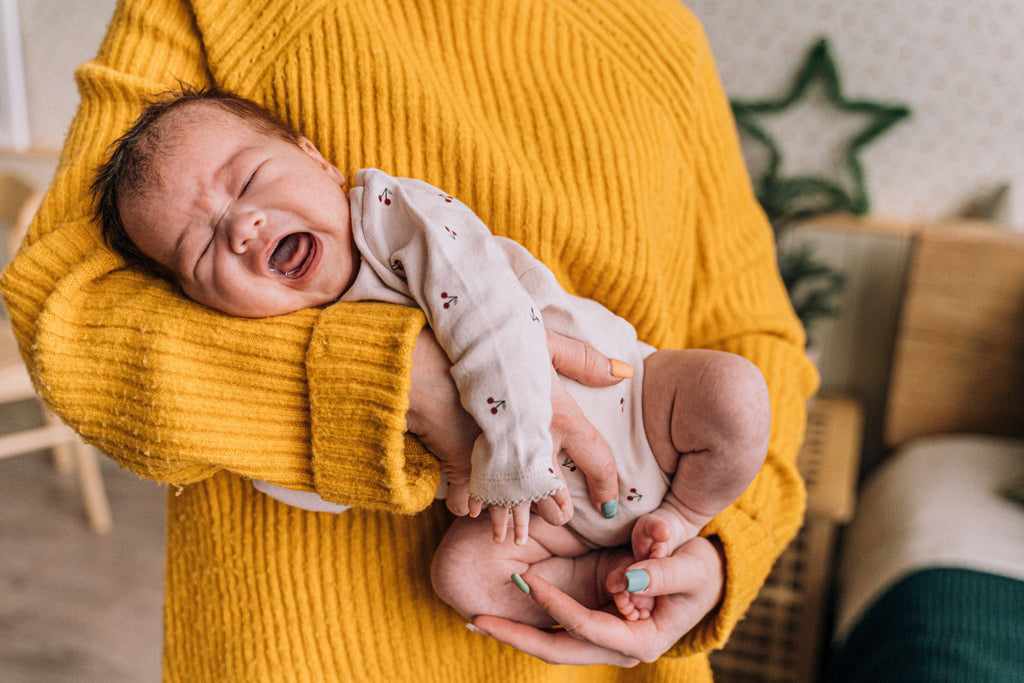
When Baby's Poop is Painful - What You Can Do
Share
When our little ones poop and it's painful could it be the formula?

Sometimes little babies strain, grimace, grunt, even cry when they try to poop. But pooping drama doesn't necessarily mean a baby needs a formula change. These elimination theatrics, even apparently painful ones can be a normal part of infant development and isn’t always a sign your baby is experiencing constipation.

What Exactly is Baby Constipation?
We all know as adults that hard to pass poop (gross we know but hey, we need to talk about it!) is a definite sign of constipation. A child's stools must also be hard for it to be constipation, so hard in fact it may look like pellets or “rabbit droppings.” A baby who cries with pooping and produces a soft BM isn’t constipated, this is typically a reaction to new foods being introduced or a slight fever (be sure to contact your pediatrician, we're not doctors over here).
Actually, constipation is pretty rare in babies who haven’t started solid foods. Constipation; however, is one of the most common issues brought to pediatricians, because crying with pooping is very common. And, it provokes (rightfully) parents stressing out and feeling anxious about baby's health.
Crying that is causing parental stress should be always assessed by a pediatric health care provider (MD, PNP, PA, DO). Please be mindful and call right away if you notice blood in the stool or diaper. Also call if crying is so excessive that it gets in the way of eating and sleeping (both yours and the baby’s).
If Crying Before a Poop Isn't Constipation - What Is It?
Crying before a soft poop has a name, it's referred to as Infant Dyschezia, pronounced dis-KEE-zee-a.
What looks like painful crying likely isn’t caused by discomfort, rather, baby is using the one tool she/he knows, crying, to accomplish one of the two physiological steps needed to poop.
Pooping has two steps that baby must engage; 1) relaxing the anus and pelvic floor and 2) bearing or pushing down to increase intra-abdominal pressure. If a baby bears down before relaxing the anus and pelvic floor, nothing happens. So, what’s a baby to do? Push harder! And keep pushing harder until along the way, the anus relaxes and soft poop finally comes out.
Baby is not crying from pain. She’s problem solving the stooling reflex with crying! Way to do smartypants baby!
Infant Dyschezia usually lasts two weeks. Changing formula won’t help poops that are already soft but not watery. Many parents do change during these weeks and think it was the formula that caused the crying or the change that made it better. But, growth (and time) is the real star of this much anticipated poop performance.
If you do speak to your pediatrician and you're ready to switch to an organic, sensitive tummy or comfort formula, don't hesitate to review our well respected and parent-trusted baby formula brands. You can always email any questions you may have or send us a DM on Instagram, we'll respond same day!
Photo credit: Antoni Shkraba

Rodney Hyde
International Formula Expert – Grow Organic Baby
